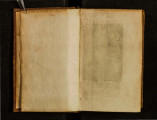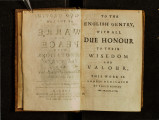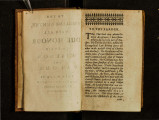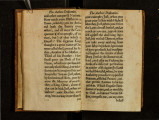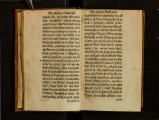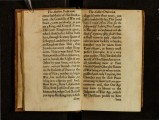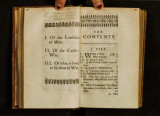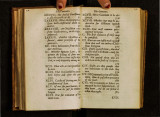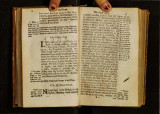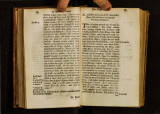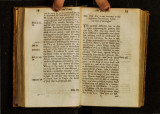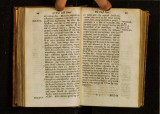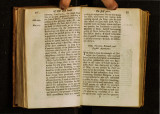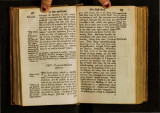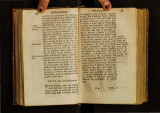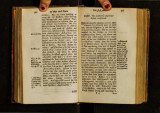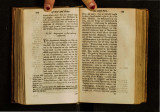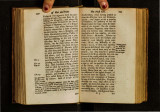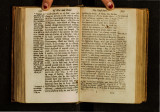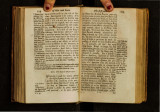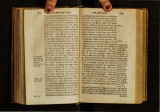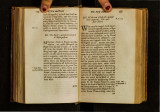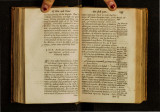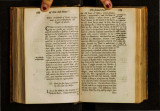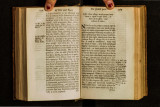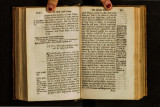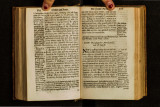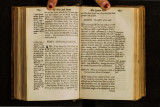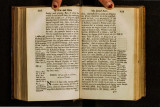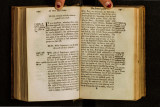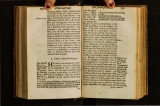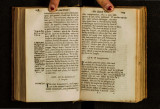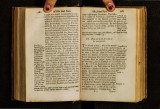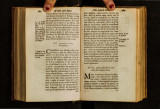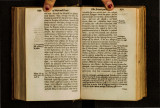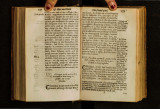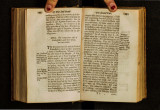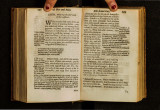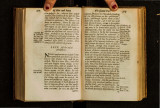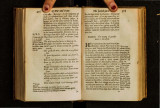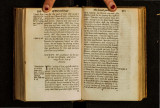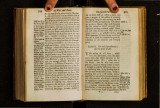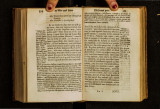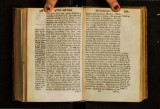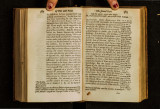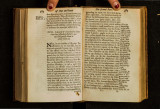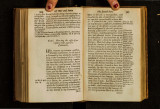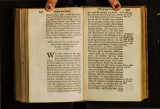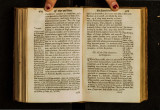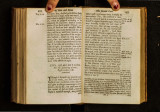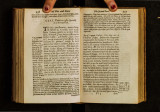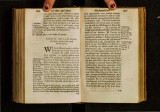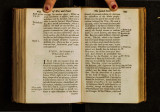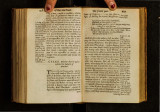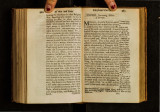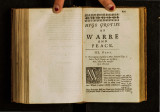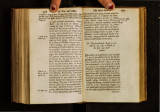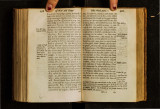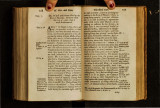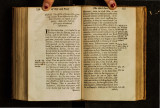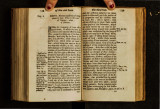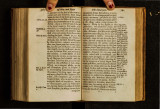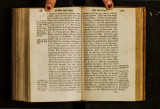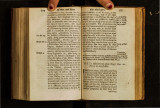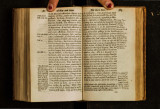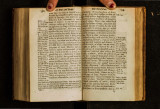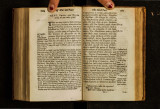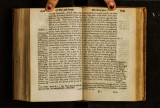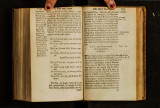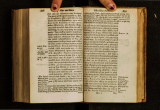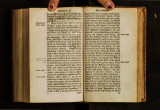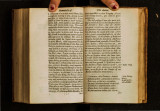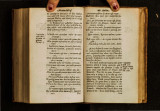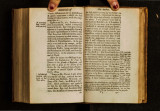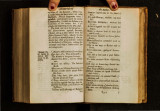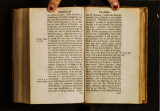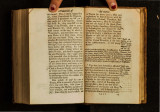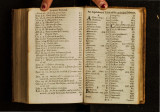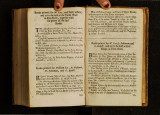| OCR Text |
Show ) XCIX. FrJur moft common prin~ipltJ ' of Religio,n. THat we may take a more perfea view of the whole matter, we muG: note Tru'e Religion, which is common to ali Ages , depends efpecially upon four prin .. ctples. t. There is a God, and He is One. z. God is not any of the thinos vifible, but of a nature more fublime. 3, All human affairs are under Gods providence and governed by his maG: righteous Judg: menr. 4· The fame God is Maker of all things without HimCelf. Thefe four are expreffed in fo many Precepts of the De ... calogue. For in the firG is plainly deliverd the Unity of God :in the i"econd,His invifible Nature : therefore to make an Image of him is forbidden, Deut. 4· ' Is, As e.,Antifthenes t alfo [aid: He is not Jeen with eyes. , he is not lik} to any thing, nett her can be known by an Image; and P hila •, It is profane to exhibite an t Laudu~ts Image , by piEl-ure or Jcu!pt~~trt, of Him Clcmenu Ale- 1: . . ; r;bl t d Pi h J_ xandrino, Jix t J~t ts mvtJt e ,; an utarc renu.c:rs illo videtbr thts caufe ) why Numa * took away hoc promfiff'c; Senec~ 7. c. 30. nat. qu.lpfe qui 1!11 traftat, qr4i cDndidit,fllitDa fltm hoc f Jradavit, Jeditq; circa fe, m•jorq; efl pan optri4 [ui ac m~lior, ef!iJ'l,il ocaltH, cogitati~n~ vifendus e(l. ,. o :c1t h:rc apud Pht· ~onem Rex ~rippa. 1 Diodorus Siculus de Mofe: Simula.crum non cPnftttuit, eo qufli Dtum noll credertt bumtma [erma effe. T2c1tus: ]ud~ti. mtnte'/ola unumq; numtn intclligunt: profanDs q•i Vt~wlflla• r,ine• :-nortalibuJ materil4 in I ptciem hominum effin[pnt. "'De hoc Nu· m;e infticuto vide & Dionyf. Halicarn. · Images The Jeana P4rt: 3 s3 Images from the 'fetnples, Becau[e God Ftmnot. be c,oncei<r/.d but 'bf-the m'ind q1tme. In the · ~hird ·precept is·· uhderftood the knowleqge and care 'of 1human aCl:ions, and thoughts 'too : fbr tpis is the founda.,. tion of an oath. · Fer, -~od is call'p a wic.r: nefs ~ everi of the 'heart , and , if' one a e.: -ceive, a revenger too: whereby both the J uGice of God is fignified,and his power. ln the fourth is acknowledged the begin-ping of the world by God·s Creation: for ·. the Jemembrance whereof, the Sabbath t t Scriptor refwas inflituted of old , and that with a ponf. nd Or- ·f:ngular ki~d of fanctimony ab?ve other ~huo;;~~~: ;~ r1tes. For, 1f one had finned agamfl other ergo memoi'ia rites,the puniG1ment of che Law was ar- mundi conditi bitrary, as about forbidden meats; if a- in.ter bomin~ gainft this, ·cwas capital: becaufe thefirvl ~rteDtur ''fee . l . f . . vo u~ ms 1 ep· VlO atton o the Sabbath, by the mGttu- ten11riumnume- ·tion , conteined a denyal of the wor1d' s rum in (aeru /i ·Creation by God. And the wortd•s beino teri4 eNJineree~tcreated by God tacitly declares his oood~ teru bon.m·atio-r. d . r. d d . o d rem. V 1de &. ne1s , an WllC om , an etermty , an qu~ pra:ce-power. Now, from thefe contemplative dum. notions follow the , a&ive , viz. That God is to be honour· d, lov· d, woriliipped and obeyed. Wherefore Ariftotle faid, he that denyeth, God is to be ho,our•d, or Topk. I· 9· Parents to be loved , is not to be refuted with arguments , but with !tripes. And T . elf where. That it is the duty of an honeA: opJc. :. 4 • man ,.every where to honour God. More-over, the verity of drefe notions, which ~ we call contemplative, dotibtlefs may be demonlha· |




